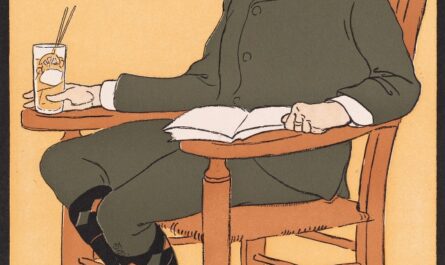Today, commitment is often derided as “obligation” or an outdated concept. Never growing up is spun as never having to “settle,” never sticking with a choice for more than a couple years is maintaining “leverage” or being “flexible.” We are distracted and paralyzed by endless possibility. As a result, commitment is sacrificed on the altar of perpetual optionality and adolescence. Society may glamorize having innumerable options, but we forget the point of having options is to choose one.
I. “Forever Young”
In, “The Cultural Significance of Pop Music,” critic Roger Scruton describes how Western popular culture peddles the myth of an eternal adolescence. Pop music perpetuates the false promise of never-ending options and youth, entirely divorced from any concept of growth, maturation, responsibility, or adulthood. Interspersed with notes on music theory and the tribal role of the “pop idol,” Scruton describes the societal implications of a youth culture which celebrates the achievement of … being young. Youth is great, yes, but it is transient and fleeting. This attitude also implicitly denies that anything greater, higher, or more significant could happen to a person than maintaining their youth for as long as possible. As Scruton writes, our culture has collectively forgotten the length of life and instead become enamored by the constant new.
“This culture aims to present youth as the goal and fulfilment of human life, rather than a transitional phase which must be cast off as an impediment once the business of social reproduction calls. It promotes experiences which can be obtained without undertaking the burdens of responsibility, work, child-rearing and marriage. Hence sex, and especially sex divorced from any long-term commitment, becomes of paramount importance; so do experiences which involve no cost in terms of education, moral discipline, hardship or love – the paradigm being drug-taking, which has the added advantage that it shuts out the adult world completely, and replaces it with a cloud of wishful dreams. When the adult world is mentioned, it is in order to pour scorn on it as a delusive fiction or a source of tyrannical constraints.”
The unhappy truth is, adolescence is a temporary stage of life, which, in the best cases, prepares the individual for adulthood. Those taught to prepare for the inevitable and build in anticipation of that reality (that is, growing older) tend to fare better. They tend to turn from simply being “young and free” to embrace adult responsibility, perhaps even parenthood. They tend to aim for careers, and prepare for the reality of having others depend on them, just as they depend on others. They consider the potential benefits of their choices ten, twenty, fifty years into the future, and invest in that future. Those who don’t or won’t prepare for the inevitable tend to reap poorer outcomes.
People short-change themselves by not committing. The most fulfilling parts of life come from commitments -those relationships and endeavors honored for years or decades. Time which might be spent accumulating a wealth of concentrated knowledge or building a strong relationship is instead wasted pursuing a shallow grasp of various subjects, prioritizing quantity over quality, never creating any depth. Personal milestones like celebrating a fiftieth wedding anniversary, deep friendships with loved ones, or retiring from a fulfilling career are also only realized after years of commitment. These worthwhile moments often command the steepest prices. This doesn’t mean they aren’t worth investment; it means you should consider carefully what you want and get started on that road sooner rather than later.
While Scruton’s comments were written in the 1980s and center around the reluctance of youth to embrace their cultural inheritance of literature, musical composition, and high culture, his words remain timeless because pop culture today continues to glorify youth and endless optionality while shirking adulthood as boring. Today’s society simply has no answer to, “What purpose has life beyond being young?” We are doing young people a disservice by pretending life is all about being young and free. The grim reality is, never committing to anything means never affording yourself the opportunity to grow and mature in a particular area. Never preparing young people for adulthood means sending them into the world ill-equipped and without foundation. It is to throw them into life unprepared and merely hoping they survive instead of teaching them to survive an entirely foreseeable future. It is reckless.
II. We will have to push ourselves towards greatness; it doesn’t come from society or laws.
In his 1978 Harvard commencement speech, renowned author Alexander Solzhenitsyn highlighted cultural differences between his homeland, the former USSR, and his adopted home of the U.S. His major criticism was to remind the listeners that greatness is an individual feat, not communal; greatness is a choice which can not be mandated.
“The law cannot itself improve society – individuals pursuing higher callings improve society. This is why leisure, the classics, and such timeless considerations of beauty, love, wisdom, etc., are not just important, but vital: they keep society advancing rather than stagnating.”
The heights a society scales depend entirely upon the souls of that nation’s people. Their vision and commitment will determine success, not the stringency of any law. The great achievements of the past – the breakthroughs in science and medicine, the artistic talents of Da Vinci, the vision of a Thomas Edison or a Steve Jobs – have come from inspired individuals committed to seeing their ideas and innovations realized. Future greatness will require no less of a commitment. The moral leaders, innovative technology and medicine, and creative business enterprises of tomorrow will come from people pursuing their dedicated interests today. If we hope to see our nations or communities thrive once again, we must do so as individuals committed to the cause.
Laws can avenge wrongdoing, but they can not inspire greatness. This drive to succeed is cultivated through leisure, reflection, and looking after our inner beings. Our souls prompt us to desire and achieve more. Living only in light of the law produces mediocrity. We have to spur ourselves – and those around us – to require more of ourselves, to commit, and commit to doing more, or better in pursuing those causes. It is in having personal standards of greatness that we see individuals go above and beyond our expectation or hopes.
To make worthwhile commitments, we need to spend time pursuing leisure, which will inform and reveal the causes we should commit to seeing through. Seneca wrote, “If a man does not know to what port he is steering, no wind is favorable to him.” The beauty of commitments is they are inspired by and reinforce direction in our lives and decisions. Thoughtfully choosing a the treasured relationships and standards to which you are committed automatically gives shape and priority to your decisions.
III. But saying Yes is hard. What if I miss out?
We live in a swipe left world ruled by the tyranny of the new. The technology sector calls this buffet of choice “optionality” and it is usually considered a good thing, as it can save the user time and resources. Our phones and software complete a dazzling array of tasks with only a few keystrokes. A scroll through any social media platform presents endless options for fashion, entertainment, music, and combinations of each. Beyond social media, the Internet itself has made the world smaller while paradoxically revealing the endless options which exist for careers, relationships, and places to call home. With over 30,000 hours of new video uploaded to YouTube everyday, and around 500,000 new websites created each day, we live in what writer David Perell terms, “the never-ending now.” We all swim in the knowledge of infinite options, and this only heightens our Fear of Missing Out, creating a paralyzing feeling of overwhelm.
One solution is to think on a longer time horizon. Stepping back and looking at our choices over a longer time-frame is a great exercise for gaining perspective. If you’re only concerned with today, whiling away a few hours with sitcoms or scrolling on your phone isn’t much of a loss. When you step back at consider that amount of time over the course of weeks or months, though, today’s four-hour kick back session turns into nearly a weekly habit of thirty hours. Suddenly your online streaming habit has become a part-time job!
We can also frame our thinking in terms of what we’d like to accomplish. Instead of asking, What sounds good right now, ask yourself, “What would I like to have accomplished by the end of this week?” Think about the personal goals you have for the next month or five years, or what you’d like to have tackled in your work in that time. This is how I mentally shifted from finding language lessons each day tedious to actually looking forward to them. Instead of thinking about how I’d rather sit and do something mindless, I remind myself of my goals, one of which is speaking three languages. I remind myself that if one wants to speak three languages, one must practice three languages. Suddenly that hour after dinner seems like a bargain. Then, at the end of each week, I’ve accumulated hours studying and practicing, which then compounds into knowledge and ease in that new language. Further, I can then use that knowledge for the rest of my life. Again, that hour after dinner seems like quite a bargain. A longer time horizon makes a huge difference in the sorts of actions we’re willing to take today in order to accomplish more tomorrow.
Longterm results require long term effort. By “longterm” we mean a matter of decades, not weeks or minutes. It means working at a pace you can continue with for months and years. Our deepest joys as humans are derived from longterm relationships – with our partners, our siblings, our children, careers, decades-long friendships, and our communities. Simply put, the odds are more favorable in committing to a few important longterm relationships and goals, and working to make them as solid as you can, building a potential reward, than they are by jumping around year to year, sowing into nothing which can possibly grow exponentially. We accomplish this best by choosing from our gathered options.
IV. The purpose of options.
Too many options is a problem.
As Harvard professor Mihir A. Desai writes, “The shortest distance between two points is reliably a straight line. If your dreams are apparent to you, pursue them. Creating optionality and buying lottery tickets are not way stations on the road to pursuing your dreamy outcomes. They are dangerous diversions that will change you.” (emphasis mine). Pursuing options for the sake of having options doesn’t move you toward your goals, or toward determining what those goals might be. In fact, it can distract you from even understanding what you want to accomplish, assuring you accomplish nothing. Making a habit of acquiring options doesn’t push you toward choosing a path, and unfortunately, it could even end up changing you from someone with goals, to someone overwhelmed by the choices and crippled by the fear of failure.
Saying yes to one thing does mean saying no to a lot of other options; this is certainly true. This is not necessarily a bad thing, but it does underscore how vital it is to think deeply about our decisions. Once you find a solution you’re happy with, stop searching for other options, and get to work on your chosen commitment. Working on the commitment reduces the fear of it not turning out quite right. To do otherwise is to choose a life of constant comparison and regret, always looking back over your own shoulder and second-guessing your own choices. The life of always holding out for something better results in a life devoid of depth.
At the same time, having some options is clearly better than having none. Does this then mean having more options always results in better decisions? Psychologist and professor Barry Schwartz has studied this question and the process of decision making for decades. He concludes having too many options more often leads to paralysis than liberation. He calls this the “paradox of choice.” Conventional wisdom would say if several options are good, more is better, but Professor Schwartz’s work paints a different picture.
For every decision we make, we have an abundance of options. With that abundance, our expectations rise – along with our potential regret. For example, when there is only one option for pizza toppings, you adjust your expectations accordingly. You either enjoy the pizza or don’t. If you don’t enjoy it, you can blame the restaurant for their lack of options. However, when you have a ton of options, the only explanation for a disappointing experience is you made a wrong choice. When you can choose from twenty different toppings and end up not enjoying your pizza, you probably added something you shouldn’t have. You made an error somewhere. Instead of the restaurant offering a poor experience, you choose poorly and regret it.
Too many options can also lead to disappointment even when a person makes a great decision. When confronted with too many options, we often end up less satisfied with the results. This is because it’s easy to imagine you could have made a better choice and regret becomes much easier – even when you make a good decision. The more options we have available, the higher our expectations become and the more attractive each appears after we’ve made our decision. This produces higher expectations and lower our satisfaction with the results. Professor Schwartz has also discovered having unlimited options often results in not making a decision at all. We get overwhelmed and delay making a choice.
The solution to all of these scenarios is to limit your options, make a decision, and then commit to seeing it through.
V. Results are not guaranteed, the price of participation, and counter arguments.
“One lives by doing things one does not particularly want to do,” wrote Joan Didion. This wisdom is largely missing from today’s conversations around life and what it entails. Part of life -and part of honoring commitments – means doing the boring things we’d frankly rather not. However, if we address the banal concerns, they become less likely to derail us. Just as putting off cutting the grass or forgetting to water our plants results in messy disasters – slowly then all at once – neglecting the boring parts of commitment can lead down a dysfunctional path. Taking care of the things you’d rather not keeps disaster at bay. Choosing to show up to your projects every day instead of going out might be the way to succeed with that commitment. Sticking with the company through a difficult time might be the commitment which crowns your career. Quality requires time and diligence. The deep, secure, and fulfilling parts of life are built over time from effort and trust, even when one doesn’t feel particularly inspired to do such things.
It must be said that committing to something does not guarantee it will bring happiness. Committing does not guarantee the enterprise will succeed. Sometimes, the choice turns out to be a mistake. A relationship, a business venture, a move to a new town winds up falling apart or being a mistake. Should that deter us from making long-term decisions? Not if one commits (see?) to learning from everything life offers, both sweet and sour. Wisdom is not restricted to success or failure; we can learn from both. Learn from those around you while they are around you. Take that knowledge with you when you move on. The best way to avoid mistakes is to gather wisdom and make a prudent decision. All decisions involve some degree of chance; the trick is finding those opportunities with greater chances of success.
If you have no commitments, you can not reap rewards compounded over the long term. They simply do not exist. At the same time, no commitment can be guaranteed to return a profit. There is always a chance of failure in any enterprise. Unknown elements are always working in the background, and the world is full of random happenings. The fact remains: You must sow in order to reap. You aren’t guaranteed to reap by planting something, but you are guaranteed to grow nothing if you plant nothing.
Plans do not always pan out – the seeds we plant do not always yield a bounty. Cakes collapse, the stock market could tank, your husband could run off with the yoga instructor. Life involves risk. Despite our best efforts, our commitments sometimes end up failing. Yet, the possibility of those rich rewards often outweighs the potential losses. I am not telling you life will go according to whatever you plan, that you will end up exactly where you intend to. Almost certainly, it will not and you will not. I am trying to explain to you life can not possibly go according to plan if you make no plans, and further, that how we choose to navigate life has a great deal to do with where we end up.
I often hear people often describe commitment as a set up for disappointment. No one enjoys being hurt; I understand that. However, it’s important to be specific with this criticism; commitment itself is not the problem; people breaking commitments causes problems. The problem is not pursuing a career with an exciting company or exchanging marriage vows; the issues arise when people break these commitments. It’s also important to understand difficulties should be expected. The value of a commitment is not that there are never difficulties, but that you have a stable foundation under you and a steady goal to focus on, providing stillness and strength through those difficulties.
Ultimately, this is the truth undergirding Roosevelt’s “Man in the Arena” speech and the truism “Better to have loved and lost than to never have loved at all” ; that it is far better to have attempted, to have committed, to have exerted and been greeted with failure, than to cower in the corner trying to summon the courage to participate. Lest those critical of commitment forget, choosing to sit life out on the sidelines breeds its own species of disappointment and regret. We have one opportunity to live a rich and fulfilling life, of which commitments to friends, faith, careers, and beliefs are paramount. You can choose to sit out, but that is a choice to succumb to fear and deny yourself of the truly human aspects of life, love, and community.
Yes, of course it is possible to go through life with no commitments, no losses on paper; but that is to choose losses much deeper. It is to choose to go through life barely skimming the surface; it is to choose a shallow existence. It is to choose anonymity over intimate knowledge, ignorance over wisdom, and distraction over depth. It is to choose to refrain from those aspects of life offering the deepest joys.
Pursue wisdom, exercise judgment, and when you find something promising, commit to it. Endless options do not ensure happiness.
Image: The Creation of Man, fresco by Giordano in the Palazzo Medici-Riccardi in Florence, 1684–1686.




